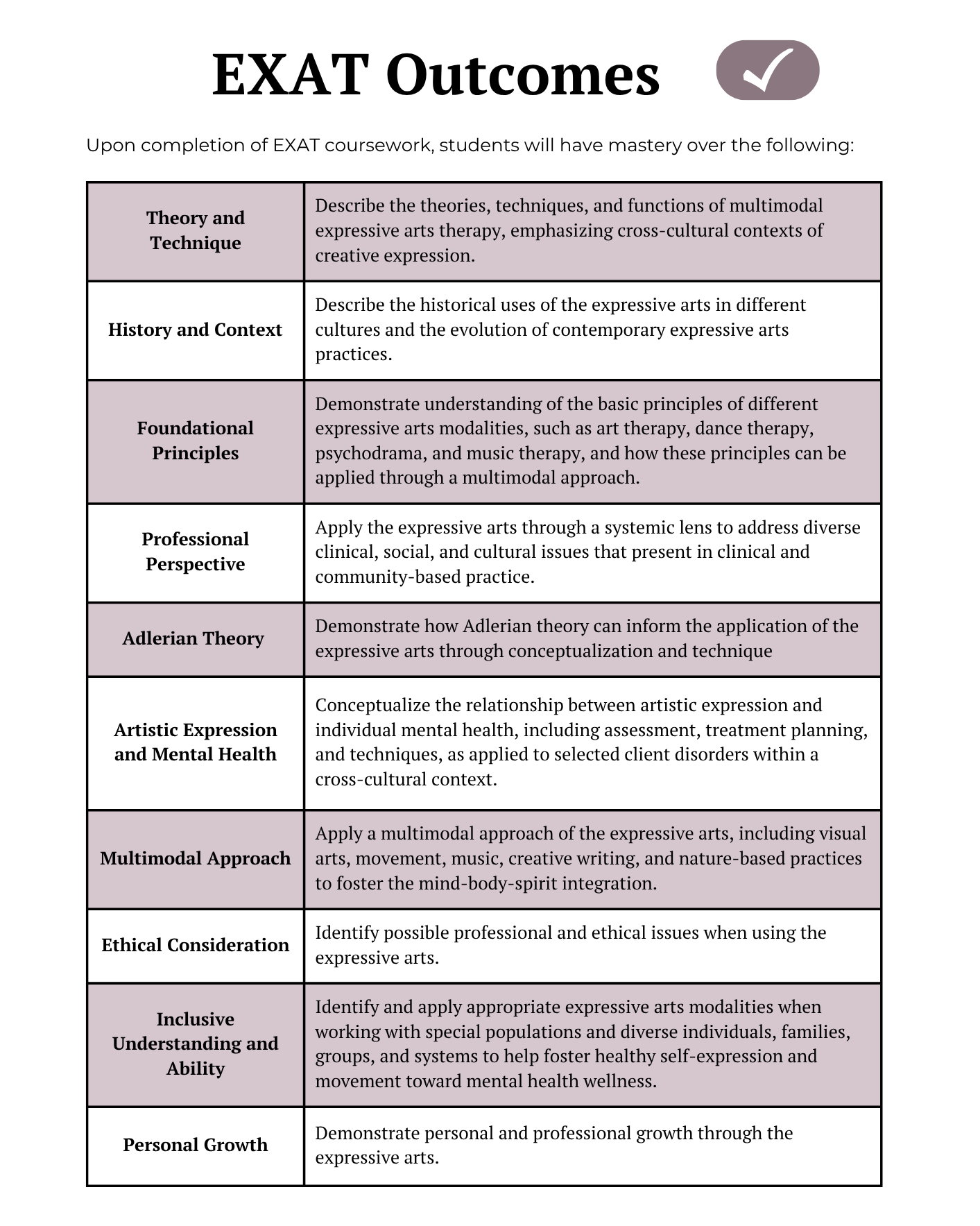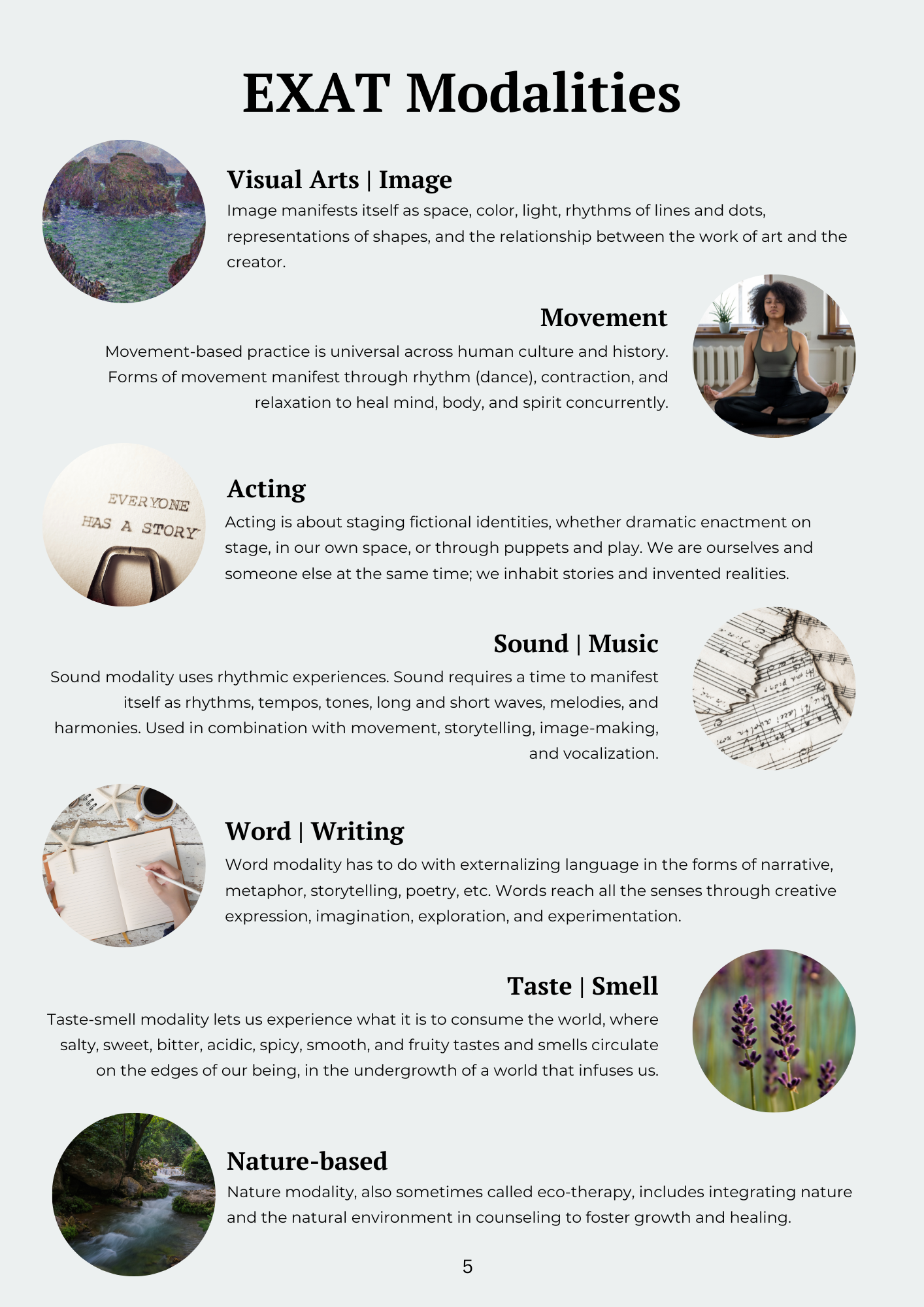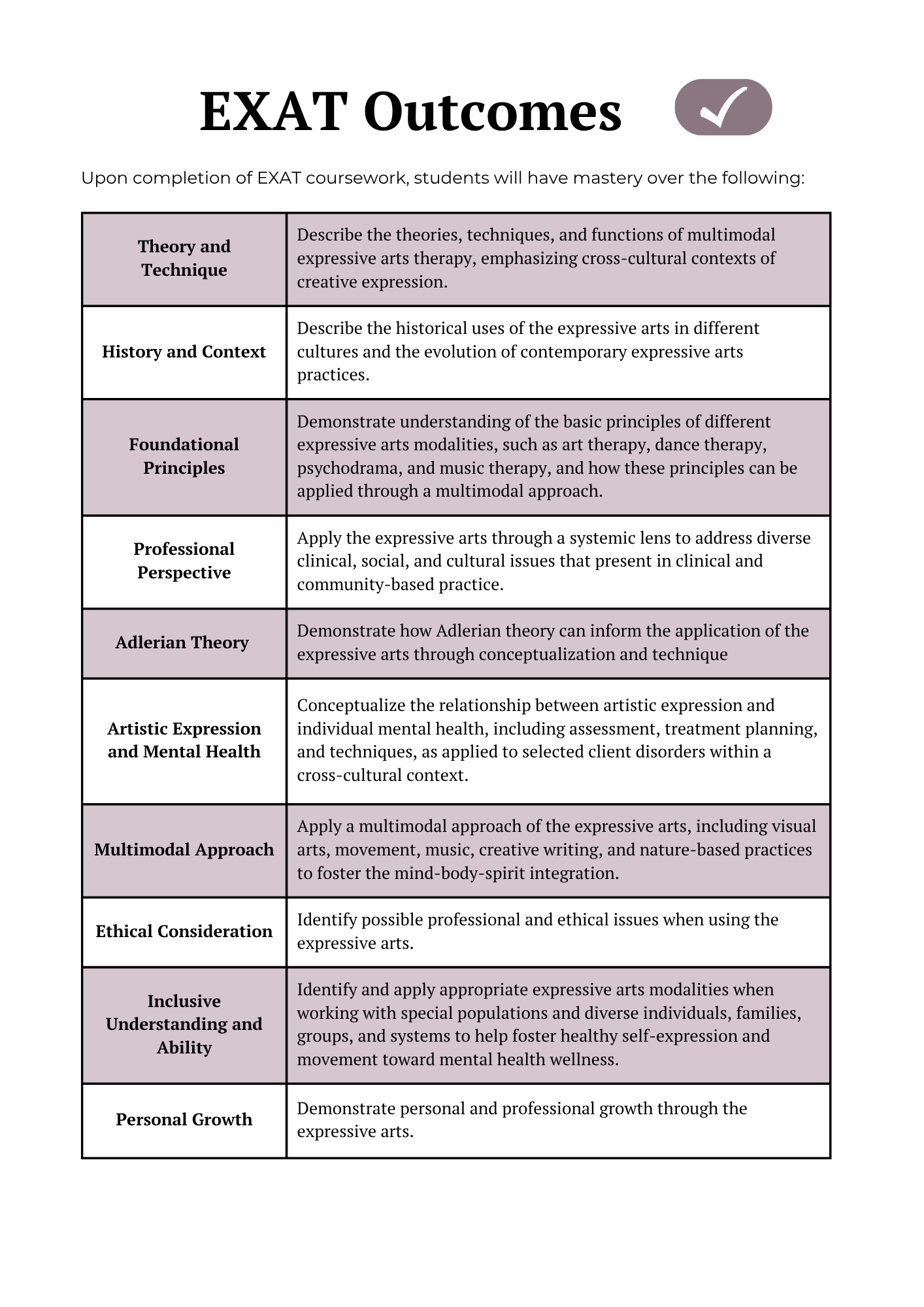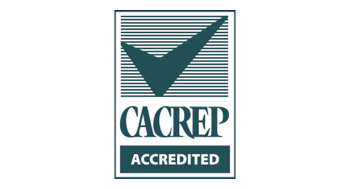Add Creative Exploration To Your Practice
Build on your professional experience and add the healing power of creative expression and exploration to your skill set with our online Expressive Arts Therapy (EXAT) Post-Master’s Certificate. Explore a variety of expressive arts modalities while developing your unique professional identity as a practitioner who uses the creative arts as a therapeutic tool for growth and healing.
Powerful, Expressive Curriculum
Our online post-master’s certificate integrates the practical application of the expressive arts with Adlerian theory. You will learn to apply a multimodal approach, addressing diverse client issues and needs through expressive modalities that connect the mind, body, and spirit—including:
- visual arts
- movement-based creative expression
- sound/music
- creative writing
- nature-based practices
You’ll discover your inner source of creativity, using your personal artistic experience as a tool for self-discovery and self-expression as you learn to identify appropriate expressive arts modalities when working with diverse individuals, families, and groups.
The certificate consists of:
- 100% online courses in our time-tested virtual format
- Supervised internship (200 hours)
- Professional REAT and Creative Arts Instructors
Certification Information
Our EXAT certificate is designed to meet the educational requirements to become a Registered Expressive Arts Therapist (REAT) with the International Expressive Arts Therapy Association (IEATA) under Categories B and C. Please see the education requirements at www.ieata.org. We offer two pathways for admission:
Pathway I Requirements (12-18 credits):
- A master’s degree in Psychology, Educational Psychology, Counseling, Social Work, Marriage and Family Therapy, or related Mental Health Discipline
- Demonstrated ongoing experience in one or more of the expressive arts modalities
Pathway II Requirements (24 credits):
- A masters degree in Fine Arts (music, visual arts, dance, drama, etc.)
- Coursework in Counseling/Psychology 1) Ethics/Professional Practice, 2) Theories, 3) Human Development, and 4) Multicultural Counseling (coursework taken through certificate program)
- Demonstrated ongoing experience in one or more of the expressive arts modalities
The EXAT certificate admits three times a year, in the fall, winter, and spring. You are welcome to take EXAT elective courses (1-credit courses) as a student-at-large, but this does not constitute official admission to the certificate program.
Spotlight
Learn more about our Expressive Arts Therapy faculty, students, and alumni.
Field Experience
Our certificate requires all students to complete 200 hours of supervised field experience* focusing on using the expressive arts, preferably completed at your place of employment. These hours are supervised by a mental health professional who is credentialed in the expressive arts.
* Applying for your REAT under Category C through the IEATA requires a 500-hour internship. Students can take additional internship hours (2-3 additional credits) through our training program OR add 300 hours to their post graduate supervised work. See the IEATA website for REAT requirements.
Required Courses
Please refer to our course catalog for the most up-to-date course requirements.








